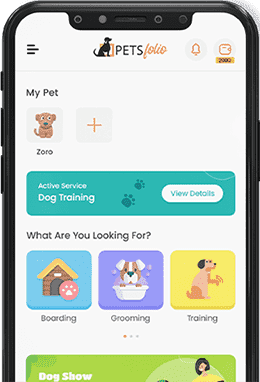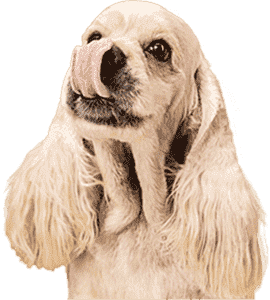Dog Evolution How Did Wolves Become Humanity’s Best Friend?
The world and the history of dogs have a close connection. Over thousands of years, from the ice tundra of the Ice Age to the comfort of an apartment in the city, dogs have been the constant companions of human beings. But what had become of the wolves, which were once so much feared as predators? The answer to this lies in dog evolution, a thrilling journey of co-survival and emotional attachment that built one of the greatest relationships on the planet.

Dog Evolution Origins: How Wolves and Early Humans Bonded
Archaeological data indicate that the domesticated animals were first of all dogs, with the domestication process starting approximately 15,000-30,000 years ago. It is probable that the encounter between humans and gray wolves took place in the hunting areas of the early humans. Scraps that hunters left behind attracted wolves. With time, the less fierce wolves even got tolerance and even companionship in human camps.
This gradual association was satisfactory to both species:
- Man became equipped with early warning systems in relation to predators.
- Wolves provided stable sources of food.
- They have also developed a partnership of survival, which became stronger with each generation.
Genetic research on dog evolution indicates that as wolves came closer to humans, humans naturally selected traits like smaller stature, reduced aggression, and puppy-like features. This gave rise to the domesticated dog.

Dog Evolution and the Rise of the Working Dog
With the development of human society, the role of dogs developed in the same way. Dogs ceased to be companions but became essential employees.
Hunters and Gatherers: Dogs were used to hunt and track down game, and thus made hunting more effective.
Guardians: Early communities used to be guarded by their acute senses.
Herders: In villages, livestock was controlled by dogs, and they also kept off predators.
Sled Dogs: In the arctic regions, they were necessary when it came to transportation in the harsh who-knows-where

Dogs, through these aspects, became inseparable. Man started to selectively breed dogs for certain tasks, and now it is amazing to see the number of different breeds of dog that are present today.
Emotional Side of Dog Evolution: From Utility to Family
Although the practical role of dogs was clear, dog evolution also highlights their emotional significance in human relationships. Dogs have acquired an extraordinary skill of reading human gestures, facial expressions, and even the tone of voice. This degree of social intelligence is exhibited by only a small number of animals.
It is not only an emotional bond but also proven by modern science to be a biological one. Research has shown that, as humans and dogs stare into each other’s eyes, oxytocin, the love hormone, is released by both parties. It is the same hormone that makes the relations between children and parents stronger.
This feedback loop of emotions made dogs the working partners become members of the family.
Cultural Significance of Dogs
Dogs were also given a particular place in human life, mythology, and spirituality.
- Ancient Egyptians also worshiped dogs and even buried them together with their owners.
- Cerberus, the three-headed dog in Greek mythology, was the one who was watching over the gates to the underworld.
- Dogs were used as a sign of protection and loyalty in China and Japan as well.
- The Native Americans believed that the dogs were spiritual guides.
In all times and places, there was one thing that did not change, and it was that dogs were the symbol of loyalty, guardianship, and unconditional love.
The Modern Role of Dogs
Dogs have further adapted with us until now, and they will do far more than what they did of serving as hunting and herding dogs.
Service Dogs: To serve people with physical disability, PPTSDD, or visual disability.
Therapy Dogs: Comforters in hospitals, care homes, and catastrophes.
Detection Dogs: This breed of dog is used in law enforcement and the security sector in drug, bomb, and even illness detection.

Companion Animals: The role they can now fill in the most universal practice, which is giving love, joy, and emotional support to the millions of families in the world today.
The dogs are no longer pets but a part of human well-being, being both physically and mentally.
Lessons from the Evolution of Dogs
Dog evolution into humanity’s best friend teaches us valuable lessons that remain true even in today’s modern world:
- Teamwork would result in survival and success.
- Sensual attachments are interspecific.
- Partnerships that are broken cannot be formed without compassion and understanding.
Dogs keep us constantly in mind that trusted relationships are founded on trust, loyalty, and unconditional love.
Quick Facts About Dogs’ Evolution
- The domestication of dogs preceded the domestication of animals and followed predation.
- There are over 340 breeds that are known around the globe.
- Dogs can learn up to 165 words and gestures.
- Dogs have a scent sense that is 100,000 times greater than that of a human being.
- The earliest dog burial site is more than 14,000 years old, which demonstrates that people treasured their relationship even at that period.
Final Thoughts
One of the greatest stories in history is dog evolution, where wolves transformed into loyal companions and humanity’s best friends. Something that started as an alliance with wolves to survive has developed into an emotional bond that adds meaning to our lives. The dogs guard us, toil with us, and provide solace at the saddest moments.
As we enjoy this union, we must also take care of them by making them healthy, happy, and dignified. The least we can do for these devoted companions is to feed them well, treat them medically, train them, and love them.
Dogs do not merely stay in our homes at the end of the day, but they live in our hearts.
Petsfolio Caring for Your Pets Like Family
If you want your pets to stay happy, healthy, and loved, Petsfolio actively ensures their care and well-being. They deserve it since our best friends are worthy of it.
Send us a Message
Enjoy this post?
Check out some more great articles and other content.
While it may seem like an ordinary daily endeavor, walking a dog is a vital exercise ...
Read The ArticlePeople have always asserted that their pets, dogs and cats, have feelings just like h...
Read The ArticleHuman beings have lived with animals since time immemorial. A question they often ask...
Read The Article
 Download App
Download App Join
Join Support
Support












